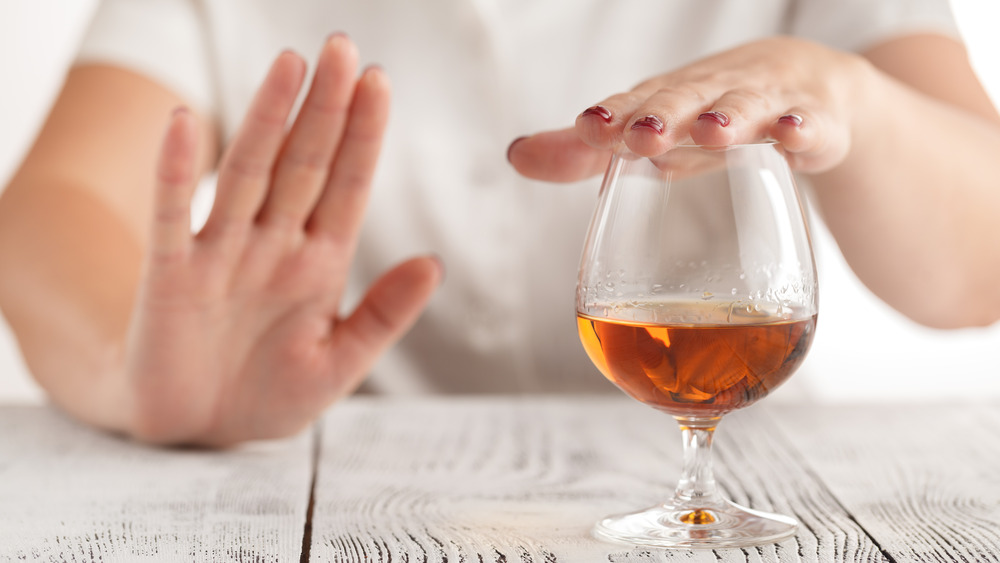The Truth About Going California Sober
2020 was a rough year to put it mildly, and if you've found yourself turning increasingly to alcohol to cope with the stress of trying to work from home, manage your kids' online schooling, tackle housework, maintain your relationships, and somehow manage to fit in self-care and a little exercise, you are far from alone. But as many turned the corner into 2021, they began to take a hard look at the coping mechanisms that got them through the previous year, and some are making an overhaul in their lifestyle. And while cutting back on alcohol might be the first step for many, not everyone feels that taking the route of complete sobriety (abstaining from all intoxicating substances) is necessarily right for them.
That's the basic tenet of being "California Sober." This lifestyle refers to abstaining from almost all substances with the most common exception being marijuana products. While many forgo alcohol altogether, some will have an occasional drink, and some also include psychedelics in this lifestyle. Since such substances are illegal with the exception of psilocybin in the state of Oregon, the generally socially-accepted term refers to recreational marijuana (via Real Simple).
Why people are turning to this lifestyle
So what's the purpose of going fully sober with the exception of marijuana products? For people who still feel they may enjoy or need a little help winding down after a long day in pandemic land, but don't want to risk good sleep or feel hungover the next day say this seems to be the best solution for them right now. One woman from Colorado told Real Simple: "When I drink, even if it's just a glass of wine or two with dinner, I definitely notice that my quality of sleep goes down...If I skip the booze and take a few hits of my cannabis vape pen instead, I sleep like a baby and wake up feeling refreshed."
Even celebrities who have struggled with addiction in the past are hopping on the California Sober wagon; singer Demi Lovato says "recovery isn't a one-size-fits-all solution" (via Women's Health). She explained, "I've learned that it doesn't work for me to say that I'm never going to do this again...I know I'm done with the stuff that's going to kill me, right?" She says that while she fully abstains from the substances that she has struggled with in the past, fully abstaining from all substance is "setting myself up for failure because I am such a black-and-white thinker...I had it drilled into my head...one drink was equivalent to a crack pipe." She does, however, warn that many who struggle with addiction need to go fully sober, saying it isn't a solution for all.
If you, or anyone you know, is struggling with addiction issues, help is available. Visit the Substance Abuse and Mental Health Services Administration (SAMHSA) website or contact SAMHSA's National Helpline at 1-800-662-HELP (4357).

